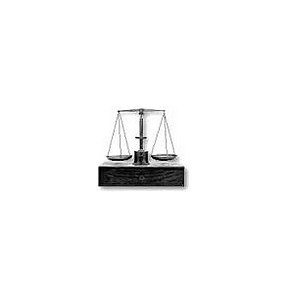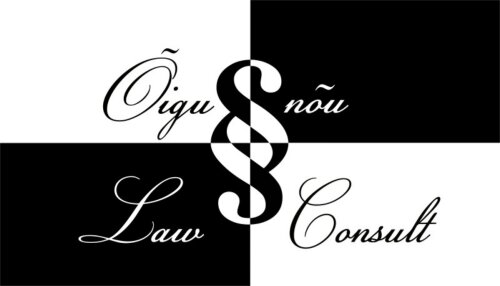Best Child Abuse Lawyers in Estonia
Share your needs with us, get contacted by law firms.
Free. Takes 2 min.
Free Guide to Hiring a Family Lawyer
Or refine your search by selecting a city:
List of the best lawyers in Estonia
About Child Abuse Law in Estonia
Child abuse in Estonia is a significant concern addressed both by domestic law and international treaties to which Estonia is a signatory. Child abuse encompasses various forms of maltreatment, including physical, emotional, and sexual abuse, as well as neglect. Estonian law aims to protect children's rights and ensure their well-being through comprehensive legislative frameworks and welfare services. Key institutions such as the Ministry of Social Affairs, police, and child protection workers play crucial roles in preventing and addressing child abuse.
Why You May Need a Lawyer
There are several situations where legal assistance may be necessary in the realm of child abuse:
If you are a victim of child abuse seeking justice and protection.
If you are accused of child abuse and need to defend your rights in court.
If you are a parent or guardian challenging decisions made by child protection services.
If you are a concerned individual or professional who needs guidance on reporting suspected abuse.
Having a lawyer can help navigate the complex legal processes and ensure that your rights or the rights of the child are protected throughout the legal proceedings.
Local Laws Overview
Child abuse is governed under various legislative acts in Estonia, aiming to protect children and sanction offenders:
The Child Protection Act provides the framework for safeguarding children's rights and outlines the responsibilities of relevant authorities.
The Penal Code outlines penalties for acts of violence, sexual abuse, and neglect against children.
The Family Law Act regulates the responsibilities of parents and guardians towards children, including their care and supervision.
In addition, Estonia adheres to international obligations under the United Nations Convention on the Rights of the Child.
Frequently Asked Questions
What constitutes child abuse in Estonia?
Child abuse includes physical, emotional, and sexual abuse or attempts to harm a child, as well as neglect or failure to provide adequate care for a child.
How can I report suspected child abuse?
You can report suspected child abuse to local child protection services, the police, or the National Child Helpline (116 111).
What are the legal consequences of child abuse?
Legal consequences can include fines, imprisonment, and loss of parental rights, depending on the severity of the abuse.
Can a child testify in child abuse cases?
Yes, children may testify in court, often with special measures in place to ensure their comfort and protection during the process.
What rights do victims of child abuse have?
Victims have the right to protection, support services, legal representation, and to seek justice against their abusers.
Is legal aid available for victims of child abuse?
Yes, victims may be eligible for legal aid, provided by the state based on financial need or the complexity of the case.
How long do child abuse investigations typically take?
The duration varies depending on the complexity of the case, with efforts made to resolve them swiftly to safeguard the child’s interests.
What agencies provide support for child abuse victims?
Support is offered by social services, child protection authorities, and specialized non-profit organizations.
Are there preventive measures against child abuse in Estonia?
Yes, Estonia implements educational programs, awareness campaigns, and risk assessments to prevent child abuse.
How does Estonia comply with international child protection standards?
Estonia complies by incorporating principles from international treaties, such as the UN Convention on the Rights of the Child, into national law.
Additional Resources
The following resources and organizations can be helpful for individuals seeking legal advice related to child abuse in Estonia:
The National Child Helpline (Phone: 116 111) offers advice and support to children and concerned individuals.
The Ministry of Social Affairs provides resources and guidance regarding child protection policies.
Local child protection services, available through municipal governments, offer direct support and intervention services.
The Estonian Union for Child Welfare advocates for child rights and provides additional resources and support.
Next Steps
If you need legal assistance in a child abuse case, consider taking the following steps:
Contact a lawyer specializing in child protection or family law to discuss your situation and receive legal advice.
Gather all relevant documentation and evidence related to the case, such as medical records and communication logs.
Report any instances of child abuse to the relevant authorities as soon as possible.
Explore the possibility of obtaining legal aid if you are eligible, to ensure you have representation.
By acting promptly and seeking professional help, you can better secure the rights and safety of a child involved in abuse cases.
Lawzana helps you find the best lawyers and law firms in Estonia through a curated and pre-screened list of qualified legal professionals. Our platform offers rankings and detailed profiles of attorneys and law firms, allowing you to compare based on practice areas, including Child Abuse, experience, and client feedback.
Each profile includes a description of the firm's areas of practice, client reviews, team members and partners, year of establishment, spoken languages, office locations, contact information, social media presence, and any published articles or resources. Most firms on our platform speak English and are experienced in both local and international legal matters.
Get a quote from top-rated law firms in Estonia — quickly, securely, and without unnecessary hassle.
Disclaimer:
The information provided on this page is for general informational purposes only and does not constitute legal advice. While we strive to ensure the accuracy and relevance of the content, legal information may change over time, and interpretations of the law can vary. You should always consult with a qualified legal professional for advice specific to your situation.
We disclaim all liability for actions taken or not taken based on the content of this page. If you believe any information is incorrect or outdated, please contact us, and we will review and update it where appropriate.
Browse child abuse law firms by city in Estonia
Refine your search by selecting a city.














